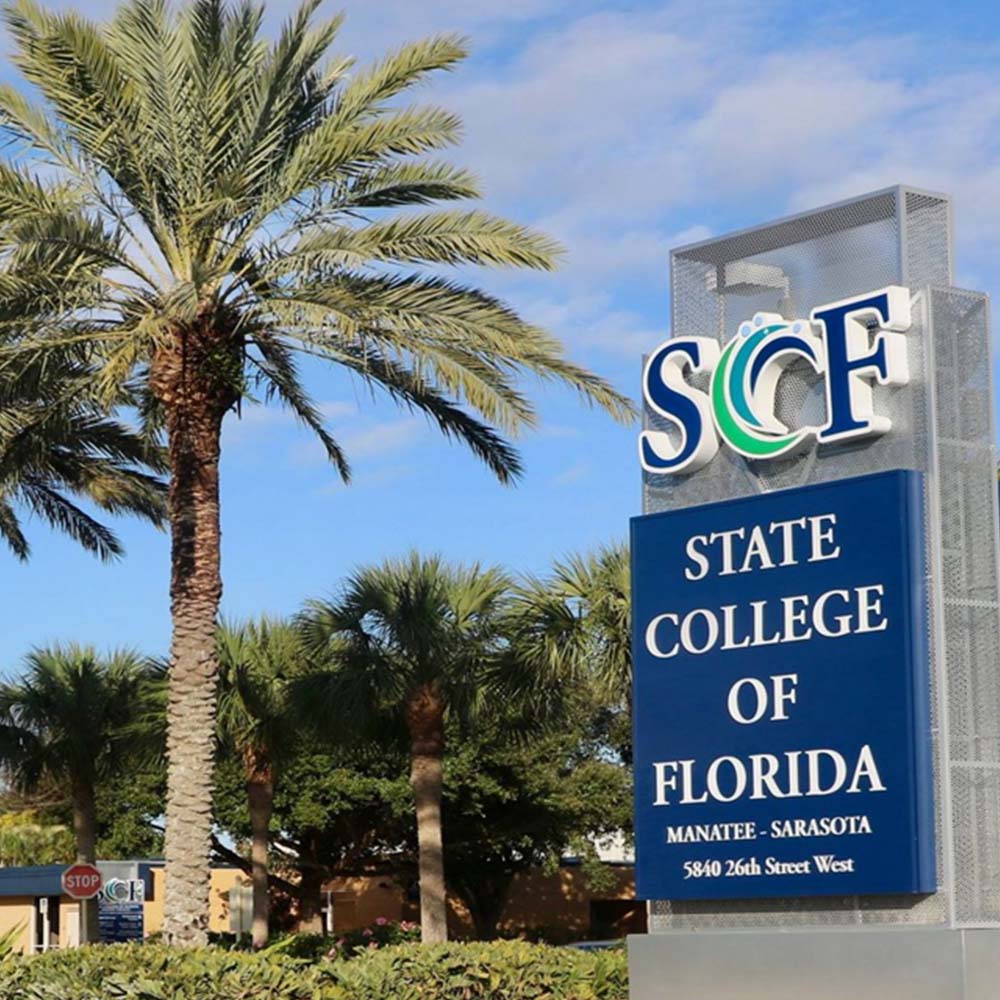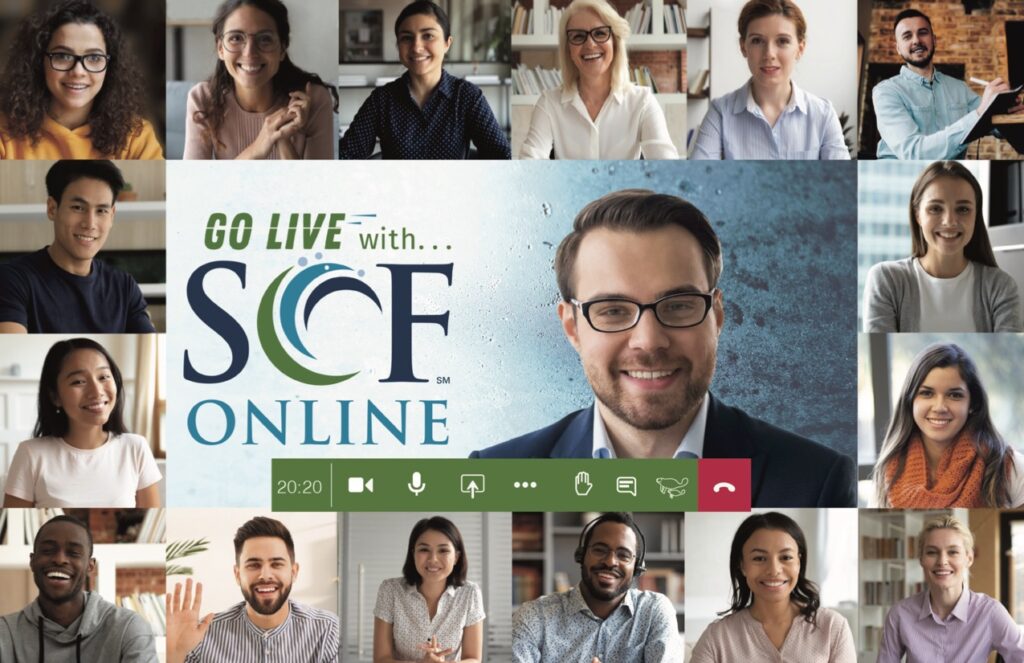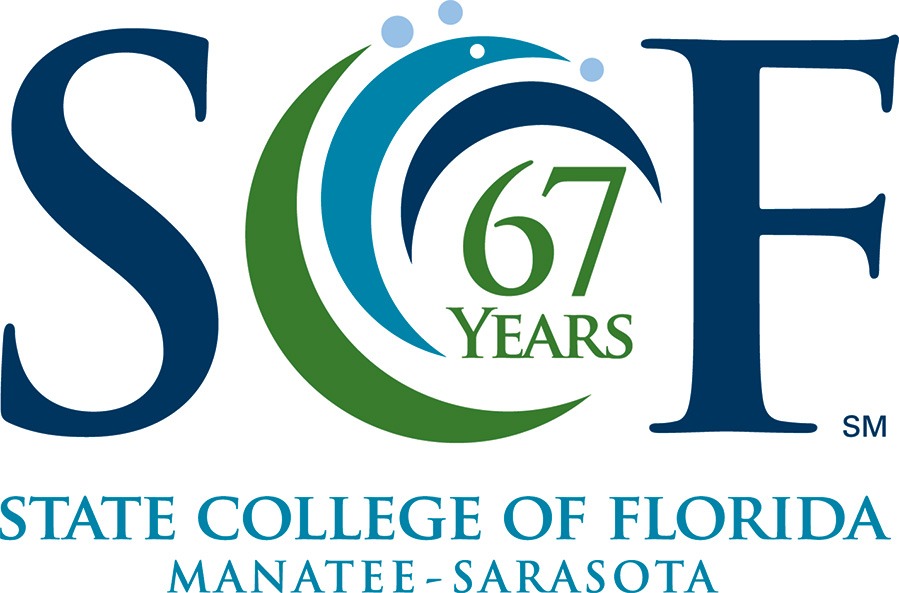SCF Online

Go Live with SCF Online!

Go Live is an expanded online learning format providing more structure and one-on-one interaction with SCF professors and classmates. Our new format allows students to receive live lectures and have real-time question and answer sessions.
Go Live with SCF Online joins the existing traditional online courses where students log in and complete studies at their own pace, and a blended format that consists of online and onsite face-to-face instruction.
What is Online Learning?
Online learning at SCF is offered in a variety of academic programs. The courses cover the same material as on-campus equivalents, but the work is completed through the use of a computer, without coming to campus. Online learning enables you to:
- Take one or more online courses in combination with courses offered in a face-to-face environment to complete degree requirements.
- Complete the majority of a degree in specific programs completely online.
- Access class information and turn in assignments from home or work.
- Have a direct connection to online instructors and advisors to assist you with your online course needs.
SCF offers many levels of online courses.
Decide which type of class is right for you.
Online courses
Online courses are delivered 100 percent online. An instructor may meet the students face-to-face for an initial session; testing may be at a proctored site. The material covered is equivalent to normal full-time class delivery for the same number of credits. Specific details of each online course and any other requirements are listed in the course notes on the course schedule lookup page. Any requirement for any course meeting on campus or at a particular location for test proctoring is also listed in the course notes.
Blended courses
Blended courses combine the use of a classroom and the use of online coursework. Blended courses are typically split evenly between online coursework (50%) and on-campus classroom meetings (50%). Details of each blended course and any specific requirements for that course are listed in the course notes on the course schedule lookup page.
Technology-enhanced courses
These are classes in which the instructor uses the Web as an additional resource for students who still meet in a classroom in a face-to-face environment. 100% of these courses are conducted in-class sessions, but homework or other class assignments may require the use of a computer with internet access.
Why SCF Online?
Online Learning courses are a great choice for students who have limited ability to take advantage of SCF’s traditional on-campus courses at Bradenton, Lakewood Ranch, and Venice. Online courses allow you to take credit courses from home via online learning, whether at work or home. You choose the most convenient time and place to learn.
What are the Advantages?
Online learning may work for you if you have work or family obligations preventing you from attending classes during traditionally scheduled hours. SCF’s online courses earn the same credits as classroom courses. While online courses require at least as much of your time and attention and are certainly not easier than traditional courses, an online course may be more convenient for your busy work and personal schedule. The only difference is the delivery of instruction and the degree of self-discipline needed to complete the course, both of which require you to take charge of your learning experience.
If you’re signing up for an online or blended course, keep these pointers in mind:
- Treat online courses with the same amount of dedication and effort that you would devote to a course on campus.
- Pay close attention to due dates and allow yourself sufficient time to complete your assignments.
- Create a personal schedule for your participation in your online course- and follow it. Just like going to a regular class, setting up a regular schedule for working on your online class can keep you on time and on-track.
- In online courses, participate in course discussions via discussion forums and e-mail. Your classwork will require you to use one or more of these communication tools, and they also help you feel like a member of the class.
Never taken an online course before? We’re glad you asked!
Take a look at what a SCF Online course looks like. As long as you have access to a computer with an internet connection, you can work towards your goals. But what does online learning look like? Every course will include a variety of activities to help you completely understand and integrate the material. Most classes include online discussions, critical thinking assignments, exercises, and portfolio projects that you can use to be more effective in your current job based on what you have learned.
Online Student Policies
Complaint and Conflict Resolution
If you have a complaint or issue with your online course, we have specific procedures in place to achieve resolution. For academic complaints, you would first start with your instructor. If that is not satisfactory, your issue will follow SCF Procedure 4.14.01 Student Request for Conflict Resolution as Related to Academic Matters. Further, Students are advise after exhausting the campus-based conflict resolution process, you may escalate your grievance to the Florida Department of Education. For more information, please visit the College Complaint Procedure Information page at fldoe.org. This procedure ensures you will have a complaint mechanism, and that there will be no retaliation for pursuing resolution of the complaint.
Privacy Policies
SCF Online is committed to protecting your privacy. Each online course may use a variety of software provided by vendors who share our commitment to online education. Below are individual software vendors used at SCF Online and their own privacy data and information.
- Adobe Privacy Policy
- Camtasia Studio Privacy Policy
- Canvas Privacy Policy
- Cengage Learning Privacy Policy
- McGraw Hill Privacy Policy
- Pearson Privacy Policy
- Respondus Privacy Policy
- SmarThinking Privacy Policy
- SoftChalk Privacy Policy
- StudyMate Privacy Policy
- TurnItIn Privacy Policy
- Wiley Privacy Policy
- YouTube Privacy Policy
- EvaluationKit Privacy Policy
- Honorlock Privacy Policy
State Reciprocity for Distance Education
State College of Florida, Manatee-Sarasota (SCF) participates in the National Council for State Authorization Reciprocity Agreement (NC-SARA), a program which establishes comparable national standards for inter-state postsecondary higher education. NC-SARA allows participating institutions to provide online education outside of their own state borders and to students from all SARA states by seeking and maintaining state approvals. As a member of NC-SARA, SCF is authorized to provide online classes and programs to students located in 49 SARA member states, the District of Columbia, the U.S. Virgin Islands, and Puerto Rico.
Professional Licensure
Notification on Professional Licensure (USDOE Regulation 34 CFR 668.43 (a) (5) (v) and National Council for State Authorization Reciprocity (NC- SARA):
Current and prospective students for certain programs at State College of Florida, Manatee-Sarasota (SCF) that lead to professional licensure are hereby notified that SCF programs fulfill education requirements for specific professional licensure required for employment in the state of Florida.
Professional licensure requirements vary from state to state and are subject to change. Students presently living in Florida who plan to obtain licensure in another state must contact their Program Manager via email to assist in determining if SCF’s program will meet the requirements for your intended state of residence. SCF licensure programs do not accept students presently living outside of the state of Florida.
Distance Learning Complaint Procedure
All students are encouraged to pursue resolution of their complaints through the internal complaint and appeal processes at SCF as the first step. Detailed information on SCF’s student appeals and complaints process is maintained in the college catalog.
If you believe that your complaint has not been addressed satisfactorily at the College after exhausting SCF’s complaint procedures, you may complete the applicable state grievance procedures by contacting the Division of Florida Colleges, by visiting https://www.fldoe.org/schools/higher-ed/fl-college-system
Out-of-State Distance Education students from State Authorization Reciprocity Agreement (SARA) states, who have completed the SCF Procedures for academic appeals, non-academic appeals, complaints, and applicable state grievance processes, may appeal non-instructional complaints to the FL-SARA Postsecondary Reciprocal Distance Education Coordinating Council (PRDEC Council). For additional information on this process, please visit https://www.fldoe.org/sara/student-concerns.stml.



